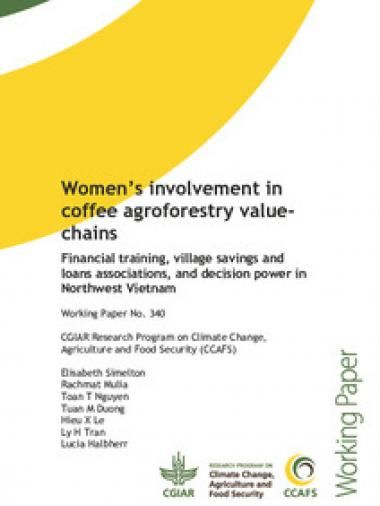This study investigated the trait preferences for cassava in the context of climate change and conflict stressors among value-chain actors in Nigeria to strengthen social inclusion and the community-resilience outcomes from breeding programs. Multi-stage sampling procedures were used to select and interview male and female value-chain participants in the Osun, Benue and Abia States. The results indicated that farmers preferred cassava traits such as drought tolerance, early bulking, multiple-product use and in-ground storability to strengthen resilience. Climate change and challenges related to social change shaped the response strategies from both genders, and influenced trait preferences, including the early re-emergence of cassava leaves, stems that had ratooning potential, and especially the root milking that was important among female respondents. The major response strategies employed by men included frequent farm visits to prevent theft and engaging in non-agricultural livelihoods. Those employed by women included backyard farming, early harvesting, having preferences for food with fewer processing steps, and depending on remittances. The resilience capacity was higher for men than for women due to their better access to assets, as well as their abilities to relocate their farms and out-migrate in search of other livelihoods. Considering gendered cassava traits, and enhancing their resilience and response strategies, can complement efforts to make breeding more socially inclusive, resilient, and anticipatory to future challenges created by climate and related social changes.
Download:
DOI:
https://doi.org/10.3390/su15107837
Altmetric score:
Dimensions Citation Count:

Publication year
2023
Authors
Olaosebikan, O.; Bello, A.; Utoblo, O.; Okoye, B.; Olutegbe, N.; Garner, E.; Teeken, B.; Bryan, E.; Forsythe, L.; Cole, S.; Kulakow, P.; Egesi, C.; Tufan, H.; Madu, T.
Language
English
Keywords
cassava, agroforestry, value chain, women, breeding, conflict, climate change, gender
Geographic
Nigeria























